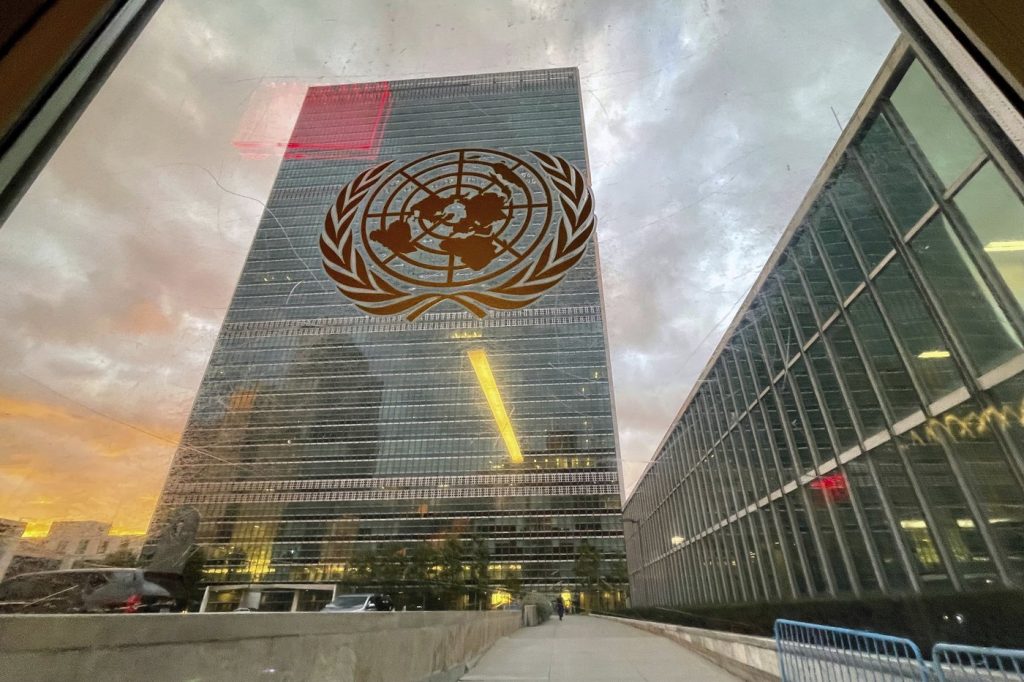UNITED NATIONS (AP) — The United Nations (U.N.) has engaged in a wide array of activities since its establishment after World War II, from delivering humanitarian aid to conducting peacekeeping operations in conflict zones. As the organization approaches its 80th anniversary, discussions about its relevance and efficiency have intensified, particularly in light of recent cuts to foreign assistance by the U.S. and a reassessment of humanitarian contributions by other countries.
Despite the scrutiny, U.N. officials emphasize their unique role as a platform for global leaders and their commitment to preventing further global conflicts. “The things that are not on the radar of anyone, that nobody sees every day, that’s what we do everywhere, in more than 150 countries,” stated Diene Keita, executive director for programs at the U.N. Population Fund, highlighting the organization’s extensive but often unseen efforts.
Here are some notable initiatives carried out by the U.N. that many may not be aware of:
1. Training for Women and Girls Facing Gender-Based Violence
U.N. agencies worldwide run programs focusing on empowering women, particularly those who have experienced gender-based violence. In Chad, for instance, the U.N. Population Fund operates rehabilitation programs where women like Halima Yakoy Adam, who escaped a Boko Haram training camp, receive health services and vocational training. Adam is now employed as a paralegal, helping others in her community.
2. Resettling Refugees in Mexico
While the migration crisis is often highlighted at borders of the U.S. and Europe, many refugees find new homes in nations like Mexico. Since 2016, the U.N. High Commissioner for Refugees has assisted in the integration of over 50,000 refugees in Mexico, providing them with transportation, orientation, and access to health and education services. Notably, 94% of working-age refugees have found formal employment shortly after arriving, contributing approximately $15 million to the Mexican economy.
3. Eliminating Exploding Remnants of War
The U.N. also focuses on the aftermath of conflicts, such as unexploded ordnance. The United Nations Mine Action Service, established in 1997, aims to mitigate the dangers posed by these remnants in countries like Syria and Afghanistan, where one person is injured or killed by land mines every hour. The U.N. reports that over 55 million land mines have been destroyed to date, with more than 30 countries declared mine-free.
4. Teaching Self-Defense to Refugee Girls in Kenya
In northwest Kenya, refugee girls aged 12 to 18 participate in Taekwondo classes organized by the U.N. Population Fund. This initiative, designed to empower girls who are victims or at risk of gender-based violence, not only teaches self-defense but also encourages discussions on related issues like period poverty and domestic conflict. The program is supported by the Olympic Refuge Foundation and is being replicated in other regions, such as Egypt.
5. Providing Sex Education Through Monks in Bhutan
Addressing taboo topics surrounding sexual and reproductive health, U.N. staff have collaborated with religious leaders in Bhutan to promote awareness. Over the past decade, 1,500 nuns have engaged in community discussions about these sensitive subjects. Currently, around 50 monks have been trained to provide counseling on sexual and reproductive health, contributing to improved maternal health and increased use of contraception in Bhutan.
These initiatives reflect the extensive efforts of the U.N. to address diverse issues beyond immediate humanitarian responses. As the organization continues to evolve and adapt to global challenges, its initiatives demonstrate a commitment to fostering sustainable development and supporting vulnerable populations worldwide.











